#Diabetes management during Ramadan
Explore tagged Tumblr posts
Text
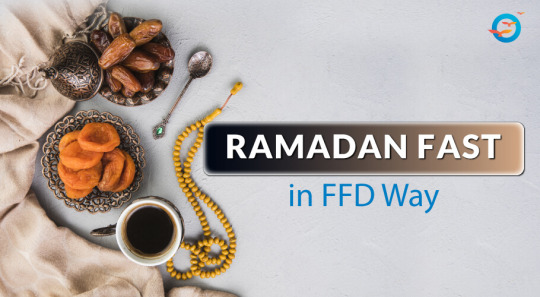
Ramzan Fasting: Do & Don't for a Diabetics
Diabetics can definitely fast during Ramadan but it has to be done differently taking care of their own health and of course sugar levels. Freedom from Diabetes recommends Ramadan fasting in their own special way given below.
Read the full blog here: https://www.freedomfromdiabetes.org/blog/post/ramzan-fasting-do-&-don't-for-a-diabetics/2589
#ramdan#Ramdan and diabetes#Ramzan#Ramadan#ramadan fasting#ramadan 2021 fasting#what is ramadan fasting#ramdan diet plan#diabetes and ramadan#diabetes and fasting#diabetes and fasting during ramadan#diabetes and fasting guidelines#type 2 diabetes and fasting#Diabetes management during Ramadan
0 notes
Text
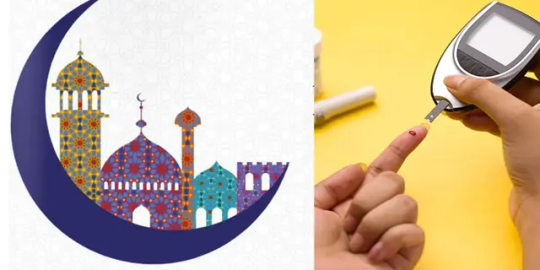
Ramadan with Diabetes: A Comprehensive Guide
Discover essential tips for managing diabetes during Ramadan. Our comprehensive guide offers insights to help you observe the fast safely and healthily.
#RamadanWithDiabetes#DiabetesManagement#HealthyRamadan#DiabetesCare#RamadanHealth#DiabeticLiving#RamadanTips#DiabetesAwareness#RamadanGuide#DiabetesSupport
0 notes
Text
Understanding Ramadan Medication Rules and Their Importance
Ramadan is a sacred month for Muslims around the world. During this time, fasting from dawn until sunset is one of the key practices. However, there are situations where individuals need to take medication for health reasons. Understanding the Ramadan medication rules is crucial to ensuring that one's health is managed while still respecting the spiritual practices of fasting.
The Basics of Ramadan Fasting
Fasting during Ramadan involves abstaining from food, drink, and other physical needs, such as smoking, from dawn until sunset. The fast is broken at sunset, known as iftar, and is resumed again at dawn, known as suhoor. However, the rules surrounding fasting have allowances for those who are ill, elderly, pregnant, nursing, or traveling. These individuals may be exempt from fasting, but there are guidelines to follow regarding when and how they can take their medication.
Ramadan Medication Rules
When it comes to medication during Ramadan, it’s important to understand that the rules depend on the type of medication, the method of administration, and the person’s health condition.
Oral Medications: Medications taken by mouth, such as tablets or syrups, break the fast because they enter the body through the stomach. Therefore, people who need to take oral medication should plan their doses around the fasting hours—either after iftar or before suhoor. In some cases, doctors may prescribe alternative forms of medication that are easier to take without breaking the fast.
Injections: Non-nutritive injections, such as insulin for diabetic patients or injections for certain other conditions, do not break the fast. These medications are absorbed directly into the bloodstream, bypassing the digestive system. However, if the injection is related to nutrition (e.g., an intravenous feeding solution), it would invalidate the fast. Always consult with a healthcare provider for clarification on what type of injection is appropriate.
Topical Medications: Creams, ointments, and other external medications generally do not break the fast since they are applied to the skin and do not enter the body through the digestive system. Again, it is important to discuss any concerns with a doctor, as some topical treatments may affect health in ways that should be taken into account during fasting.
Eye Drops, Nasal Sprays, and Other Non-oral Medications: Generally, medications such as eye drops or nasal sprays are permissible during fasting as long as they do not reach the stomach. However, care should be taken to avoid the intake of any substance that may inadvertently break the fast. Consulting a healthcare professional is always advised to confirm the appropriateness of these treatments.
Health Considerations
It is essential to prioritize health during Ramadan. If fasting poses a significant health risk—especially for those with chronic conditions such as diabetes, hypertension, or heart disease—consulting with a doctor is crucial. A doctor can help determine whether it’s necessary to adjust medication schedules or if fasting should be postponed in favor of health and well-being. In many cases, it is permissible to make up the missed fasts later or to offer charity as a substitute, depending on the severity of the situation.
Spiritual and Practical Balance
Ramadan is a time for spiritual reflection, self-discipline, and devotion. Balancing the physical needs of the body with the spiritual obligations of fasting is important. Understanding the rules surrounding medication helps ensure that people can maintain both their health and their faith. Remember, the primary goal of Ramadan is to grow spiritually, and health should never be compromised in the process.
For anyone looking to deepen their understanding of the Quran and Arabic, it can be helpful to explore platforms that provide accessible learning resources. One such platform is Shaykhi, which offers tools and content for learning the Quran and Arabic in a structured and supportive environment.
In summary, the Ramadan medication rules are designed to help people manage their health while observing the fast. Whether it’s timing medication properly or seeking alternative treatments, there are ways to maintain good health during this important month. Always seek guidance from medical professionals when needed to ensure both your health and faith are well taken care of.
0 notes
Text
Free powerpoint on: Managing DIABETES
Attached is a link for the free download of PowerPoint
The following points were discussed in the lecture
1- What is Diabetes?
2-SYMPTOMS OF DIABETES
3- Challenges during Ramadan
4- Tips for Managing Diabetes during
5- CONCLUSIONS
For download from our website - PowerPoint section in English,
link to the lecture:
youtube
#freeppt#animation#animated#presentation#powerpointpresentation#templateswithanimation#viralpowerpointanimation#advancedpowerpoint animation#freepowerpointtemplate#powerpointtemplate#animatedpresentation#powerpoint#بوربو��نت#narrative#narration#Youtube
0 notes
Text
Benefits of Acquiring Home Healthcare Services in Ramadan
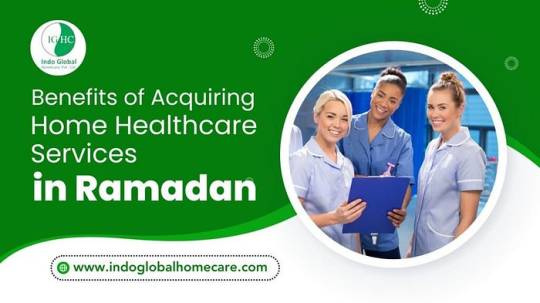
Ramadan, the holy month of fasting and reflection, holds great significance for Muslims around the world. It is a time of spiritual rejuvenation, increased devotion, and acts of charity. For individuals in need of healthcare support, acquiring home healthcare services during Ramadan can bring about numerous benefits. In this blog, we will explore the advantages of accessing home healthcare services during this sacred month.
Maintaining Spiritual Focus: Ramadan is a time of spiritual introspection and increased devotion. Acquiring home healthcare services allows individuals to receive the necessary medical care while maintaining their spiritual focus. By receiving care at home, they can observe their religious rituals, engage in prayer, and participate in the various activities associated with Ramadan without compromising their healthcare needs.
Convenience and Comfort: Home healthcare services offer convenience and comfort to individuals during Ramadan. Instead of visiting medical facilities or hospitals, patients can receive necessary care in the comfort of their own homes. This eliminates the need for travel, long waiting times, and potential exposure to illnesses. The familiar environment of home promotes a sense of calm and security, contributing to overall well-being.
Personalized and Comprehensive Care: Home healthcare services provide personalized and comprehensive care tailored to the unique needs of each individual. Skilled healthcare professionals deliver services ranging from medication management to wound care, chronic disease management, and post-operative support. This personalized approach ensures that patients receive the specific care they require, promoting better health outcomes and faster recovery.
Nutritional Support: During Ramadan, fasting from sunrise to sunset is a significant aspect of the religious observance. For individuals with specific dietary needs or medical conditions, such as diabetes or heart disease, home healthcare services can offer nutritional support and guidance. Healthcare professionals can provide specialized meal planning and dietary advice to ensure a balanced and healthy diet during non-fasting hours.
Emotional Support: The holy month of Ramadan can evoke a range of emotions, and having access to home healthcare services can provide valuable emotional support. Caregivers and healthcare professionals offer companionship, empathy, and a listening ear to patients and their families. This emotional support is particularly beneficial during Ramadan, as individuals navigate through the spiritual and emotional challenges of the month.
Conclusion:
Acquiring home healthcare services during Ramadan offers numerous benefits for individuals in need of medical care. It allows them to maintain their spiritual focus, receive personalized and comprehensive care in the comfort of their own homes, and access necessary support for nutrition and emotional well-being. By availing of home healthcare services, individuals can fully immerse themselves in the spiritual practices of Ramadan while receiving the professional care they require. This combination of healthcare and spirituality contributes to a holistic approach to well-being, enhancing the overall Ramadan experience for those in need of support.
0 notes
Text
The Health Benefits of Fasting: Insights from Surah Mulk
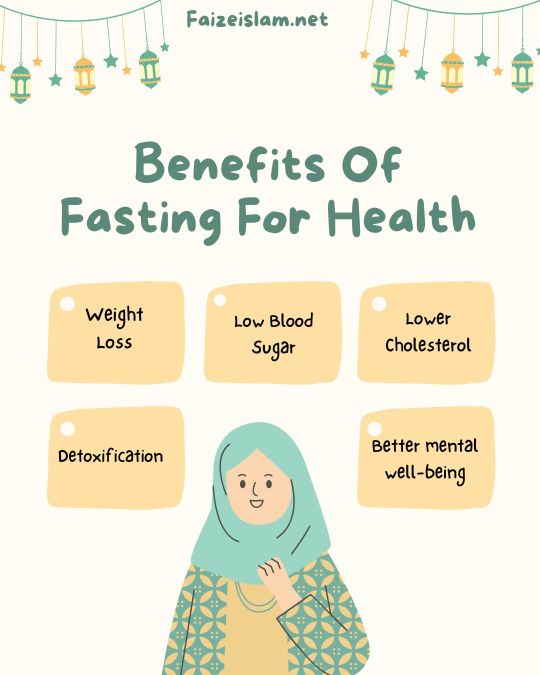
Fasting, a practice observed in various cultures and religions, has garnered attention not only for its spiritual significance but also for its potential health benefits. From weight management to improved metabolic health, fasting has been linked to numerous positive outcomes. In Islamic tradition, fasting during the month of Ramadan is not only a religious obligation but also a time for self-reflection and spiritual growth. Surah Mulk, found in the Quran, provides insights that resonate with the health benefits associated with fasting, offering valuable lessons for both physical and spiritual well-being.
Fasting, particularly intermittent fasting, has gained popularity in recent years due to its potential to promote weight loss and improve metabolic health. By restricting the window of time during which food is consumed, intermittent fasting can lead to reduced calorie intake and increased fat burning. Studies have shown that intermittent fasting may also enhance insulin sensitivity, lower blood sugar levels, and reduce inflammation, all of which contribute to a lower risk of chronic diseases such as type 2 diabetes and heart disease.
Surah Mulk, the 67th chapter of the Quran, emphasizes the importance of self-discipline and gratitude. It encourages believers to reflect on the creation of the heavens and the earth and to recognize the signs of Allah's power and wisdom. This reflection fosters a sense of humility and gratitude, qualities that are integral to both spiritual and physical well-being. Similarly, fasting instills discipline and self-control, helping individuals develop a deeper appreciation for the blessings in their lives.
Moreover, fasting has been shown to have profound effects on brain health. Research suggests that fasting may promote the growth of new nerve cells and increase levels of brain-derived neurotrophic factor (BDNF), a protein that supports cognitive function and mood regulation. Fasting has also been linked to a reduced risk of neurodegenerative diseases such as Alzheimer's and Parkinson's disease. Surah Mulk encourages believers to ponder the marvels of the natural world and to use their intellect to recognize the signs of Allah's existence. This intellectual stimulation is akin to the cognitive benefits associated with fasting, as both practices promote mental clarity and acuity.
Furthermore, fasting has been shown to have anti-aging effects at the cellular level. Studies have demonstrated that fasting activates autophagy, a process by which cells remove damaged components and recycle them for energy. This cellular cleansing mechanism helps to rejuvenate cells and tissues, potentially extending lifespan and slowing the aging process. Surah Mulk reminds believers of the transient nature of life and the inevitability of death. This reflection serves as a reminder to prioritize actions that bring long-term benefit, both in this life and the hereafter. Similarly, fasting encourages individuals to adopt healthy habits that promote longevity and vitality.
In addition to its physical benefits, fasting has a profound impact on spiritual well-being. It fosters a sense of empathy and compassion for those who are less fortunate, as fasting teaches individuals to experience hunger and thirst firsthand. Surah Mulk emphasizes the importance of serving others and fulfilling one's responsibilities to society. This altruistic spirit is reinforced through acts of charity and kindness, which are central to the practice of fasting during Ramadan.
In conclusion, fasting offers a multitude of benefits for both physical and spiritual health. From weight management to brain health to anti-aging effects, fasting has been shown to promote overall well-being. Surah Mulk provides valuable insights that parallel the health benefits associated with fasting, emphasizing the importance of self-discipline, gratitude, and reflection. By incorporating fasting into their routine, individuals can enhance their physical health, cultivate spiritual growth, and align themselves with the teachings of the Quran.
0 notes
Text
Managing Diabetic Nephropathy Treatment During Fasting
As the holy month of Ramadan approaches, it is important for individuals with diabetic nephropathy to be extra cautious about their health. Diabetic nephropathy is a serious complication that affects the kidneys of people with diabetes. It is characterized by damage to the small blood vessels in the kidneys, leading to kidney failure if not managed properly. During fasting, it is crucial to…
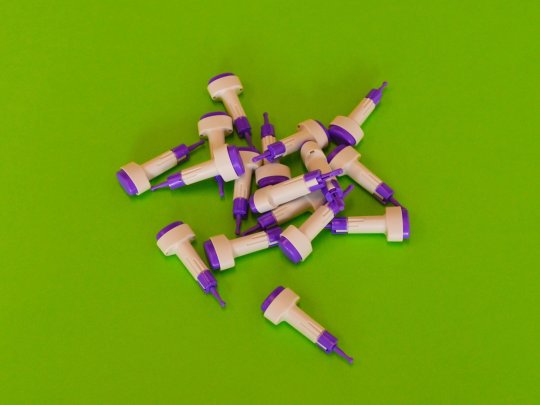
View On WordPress
0 notes
Note
Not to sound bitter but I really hate when ppl try to compare t1d to t2d when the two are so different from each other. Its like comparing asthma to cystic fibrosis. I have t1d and it's so difficult to manage. My pancreas literally doesn't work but all the headlines and health guidelines is dedicated to t2d who let's be honest, brought it upon themselves due to their unhealthy lifestyles while I born like this.
Salaam!
I don't think you sound bitter at all anon and what you're saying makes a lot of sense. I have a friend with type 1 diabetes and his experiences during Ramadan sound a lot like yours where people can't understand how serious it is.
May Allah make it easy for you.
1 note
·
View note
Text
Meet The Diet regimen Slimming Perfume.
If you're dealing with to slim down, you are actually probably investigating the very best diet regimens as well as which is right for you. The other factor is this kind of public health argument that if you only say to folks that you don't must eat carbs but you can do just what Atkins told folks, you don't must eat carbs but you could consume as much steak as you want, seafood Newberg, quarter-pounder burgers, enjoy, merely don't consume carbohydrates and you'll burn fat. http://laforcedefruits-blog.info assumed this message was actually unfortunate and also incredibly contradictory for people which really shouldn't be dropping weight. Always remember that some folks are actually extra conscious variations in water weight in comparison to others. Low-fat as well as low-carb diets produce equivalent weight reduction and improvements in blood insulin resistance however the low-carb diet may be actually hazardous to vascular health, inning accordance with a brand-new study in Diabetes. A low-carb diet like Atkins helps you manage your blood glucose as a result of the foods you are consuming-- protein, body fat and thread coming from veggies. I would say no. I assume if an individual experiences addicted" around meals, they might want to examine their amount from physical regulation (really refusing themselves appropriate fats, creating excessive cravings, and/or rejecting on their own specific foods) or their level of psychological stipulation (consuming the foods items but feeling responsible regarding them, identifying meals good/bad, really feeling negative concerning their physical bodies and making use of food items as a stand-in). Corinne Podger: Online dieters Chip, Anna and also Lyn typically aren't thinking about the 80 per-cent who fail; they wish to become aware of the others, the one in five which deal with certainly not merely to reduce weight but to keep it off. However currently I'm additionally on a fitness center zing for a month or 2, to get my body weight down and strength up, into a different zone. The superstar admitted to consuming alcohol additional after experiencing her divorce coming from past spouse of five years, Jordan Bratman, and also being actually lax on her diet regimen. Got my very first pair of weeks from meals this evening, as well as had 8 meals substituted by things I failed to order. I believe I check out Topiramate would not be actually risk-free to have while on this form of diet do to renal rock creation. Our experts reside in a globe where our company go to work, bring up kids, travel through McDonald's, experience delight as well as stress, reveal food items along with relatived ... I do not wish to judge, yet I am actually pretty sure the daily life from a computer mouse is not quite as complex as that from an individual. In this particular research, reduced threat of cardiovascular fatality was urled to the Mediterranean diet just in the course of the first healthcare facility remain. Though the incorporated B vitamins could be replaced along with whole foods items, the only energetic element for effective weight loss besides vitamins is coffee robustica. My weight varies in between 209-216 pounds (98-95 kilograms) as well as my waist circumference is 36 inches (92 centimeters), which offers me a weight loss from concerning 143 pounds (65 kilograms) and also 23 inches (58 centimeters) smaller sized circumference. It is actually likewise the first time Body weight Watchers has actually fallen out of the top 5, right now can be found in at # 10, yet with the latest announcement that Oprah will be their brand new representative in 2016, we anticipate them rebounding next year.. Talking from experience, as I am at a fit as well as healthy and balanced weight I reside in a happier mood compared to the amount of times when I am heavier. But I also attempted carrying out weightlifting on an empty belly prior to as well as failed to like that in any way, I experienced unstable and also could not perform a bunch of agents, for me it pretty much was actually ineffective. my company attempt to stick to this diet plan essentially yet do not eat red meat product, poutry or pork. Fast onward a million years or so, and also not merely have our situations modified dramatically, yet thus has our meals. Particularly, the danger of urinary system tract contaminations as well as genital fungus infections boosts - the result from all the sweets (food for micro-organisms and also fungis) that crack into the pee. Having said that, if you're alarmingly overweight and you've tried all various other techniques after that the FDA accepted weight management strategies use a glimmer from chance - but they come with a rate. Re Problem 2 - the RC diet plan possessed an increase in fat oxidation that was a fair bit less than the reduction in electricity consumption, so they were actually making use of carbohydrate (glycogen) reserves. When I initially started on my weight-loss trip, my objective was certainly not to reside a dog's life of deprival; as a matter of fact, I determined that if I couldn't go as well as appreciate a McDonald's meal at the very least when a full week, I wasn't mosting likely to continue from it. And during that time in my youthful, never-dieted, regularly eating way too much physical body, I performed drop weight promptly and conveniently without harsh deprival. Since people were reading as well as seemed to be to want a lot more, I really felt motivated sufficient to start a podcast with my friend Aaron Flores, RDN, which has actually been actually a lot fun for me. I came to get on Christy Harrison's Meals Psych podcast to refer to my past with meals as well as weight loss which was actually so very tremendously cool. Some research studies of Ramadan have presented weight increase during the course of this period therefore. But PHYSICIAN Dukan carries out all he can to eradicate both carbs as well as body fats coming from his fat burning periods. In her service, Trudy helps customers along with fat burning and food longings, as well as operates a meals weblog full of mouth-watering dishes. My weight dropped coming from around 150 to 142.5 after the initial full week however during the 2nd week my weight fluctuated as higher as 147.5 and afterwards the next day was down to 143. She points out lots of weight reduction facilities make use of dish substitutes as part of a closely watched very-low-energy diet plan (VLED) for individuals with being overweight. Okay, the moment you choose a practical diet plan you definitely must include workout in to your regimen. Not only cravings reductions, but additionally rate of metabolism increasing, blood sugar management, and other effective weight loss perks. Microsoft Shanks said among the reasons why going or eliminating breads to reduced carbohydrate diet regimens would certainly cause quick weight management resulted from the body system exhausting its own carb establishments, which are stored along with water. Considering that her triglycerides are very high, her physician lately informed her that she requires to follow a low fat deposits diet.
1 note
·
View note
Text
How To Manage Diabetes During Ramadan Fasts? Tips By Expert
How To Manage Diabetes During Ramadan Fasts? Tips By Expert
Diabetes Management during keeping fasts in ramadan can be tough, here is tips from expert. Source link
View On WordPress
0 notes
Text
Benefits of Ramazad/Ramadan
Ramadan is 9th month in the lunar calendar. All Muslims keep fast from dawn to sunset and do not eat and drink during fasting. Fasting is compulsory for every adult Muslims. Allah said to give big reward of fasting. There are countless benefits of Fasting in Ramadan.
In the holy month of Ramadan, Muslims shows their believe in faith by keeping fast. They become closer to Allah. Allah emphasize in Quran to keep fasting when you have it in your life.
Followings are the Health benefits of Ramadan.
1. Fasting control Blood sugar
Fasting help to control sugar level of body. It helps patients to get rid of insulin. A few organs that assume a part in diabetes may profit by fasting, as well. Your body stores additional glucose in a structure called glycogen in your liver. It takes your body around 12 hours to utilize that glycogen. In the event that you don’t eat, your body starts to consume fat rather than glycogen for energy. That assists with weight reduction. It additionally gives your liver and pancreas (which makes insulin, the chemical that controls glucose) a break.
2. Improve Heart health by controlling of blood pressure and cholesterol level
Since in fasting calories is under control so blood pressure is under control. Fasting helps to control cholesterol level.
3. Weight loss by limited calories and boosting metabolism
When we keep fast then calories that we take in normal routine decreases. As a result of fasting, body weight loss. Fasting help to fatty people to reduce their weight.
4.Improve yours Brain Function Benefits of Ramadan
Fasting improve yours brain function because it enhance the construction of a protein called brain-derived neurotropic factor (BDNF).
This convert brain dead cell into new neurons. It help to triggers many other chemicals which improve neural health. Fasting protect you from brain diseases.
5. Improve yours immune system
Fasting improves the safe framework since it decreases free extreme harm, manages incendiary conditions in the body and starves off malignant growth cell formation.
This is a base intuition to diminish weight on their interior framework so their body can ward off contamination.
0 notes
Text
Ramadan Nutrition Plan by Pankaj Narsian
During the Holy month of Ramadan, healthy adult Muslims practice daily fasting from dawn until sunset. Traditionally, one breaks the fast at sunset and then eats again with a pre-dawn meal. However, the fast often breaks with a rich and festive meal, served with all the best foods.
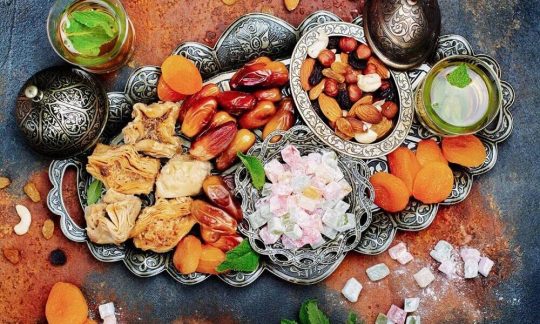
Hence, it might be challenging for people who are working on weight loss programs. Besides this, people with various metabolic conditions like diabetes may encounter problems of hypoglycemia or hyperglycemia if they do not manage their meals properly.
Benefits of this plan
This is a 1400 calories sample plan that has been designed with a high protein content along with a good amount of carbohydrates and healthy fats. A high protein diet prevents muscle breakdown which might happen due to fasting especially if one is not fulfilling the right amount of protein in their diet.
Protein has a high satiety effect. Eggs and chicken take longer to get digested hence makes you feel full. Whey protein isolate is light as it gets digested very fast so it’s a good option to break the fast in the evening. And since it’s light, one can have a wholesome dinner immediately after 2 hours without making you feel heavy and uncomfortable.
Who should use this plan?
This is just a sample plan of 1400 calories. So this plan is suitable for those whose caloric requirement is about 1400 and who is looking for a healthy way of hitting their caloric goals with the right proportion of protein, carbohydrates, and fats.
0 notes
Text
Benefits of Acquiring Home Healthcare Services in Ramadan
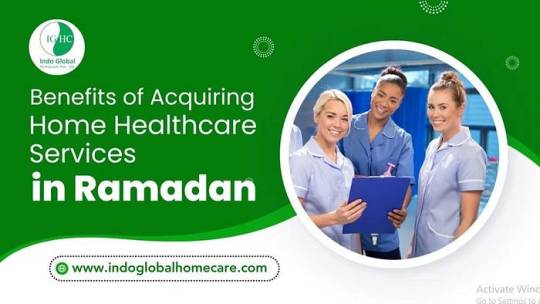
Ramadan, the holy month of fasting and reflection, holds great significance for Muslims around the world. It is a time of spiritual rejuvenation, increased devotion, and acts of charity. For individuals in need of healthcare support, acquiring home healthcare services during Ramadan can bring about numerous benefits. In this blog, we will explore the advantages of accessing home healthcare services during this sacred month.
Maintaining Spiritual Focus: Ramadan is a time of spiritual introspection and increased devotion. Acquiring home healthcare services allows individuals to receive the necessary medical care while maintaining their spiritual focus. By receiving care at home, they can observe their religious rituals, engage in prayer, and participate in the various activities associated with Ramadan without compromising their healthcare needs.
Convenience and Comfort: Home healthcare services offer convenience and comfort to individuals during Ramadan. Instead of visiting medical facilities or hospitals, patients can receive necessary care in the comfort of their own homes. This eliminates the need for travel, long waiting times, and potential exposure to illnesses. The familiar environment of home promotes a sense of calm and security, contributing to overall well-being.
Personalized and Comprehensive Care: Home healthcare services provide personalized and comprehensive care tailored to the unique needs of each individual. Skilled healthcare professionals deliver services ranging from medication management to wound care, chronic disease management, and post-operative support. This personalized approach ensures that patients receive the specific care they require, promoting better health outcomes and faster recovery.
Nutritional Support: During Ramadan, fasting from sunrise to sunset is a significant aspect of the religious observance. For individuals with specific dietary needs or medical conditions, such as diabetes or heart disease, home healthcare services can offer nutritional support and guidance. Healthcare professionals can provide specialized meal planning and dietary advice to ensure a balanced and healthy diet during non-fasting hours.
Emotional Support: The holy month of Ramadan can evoke a range of emotions, and having access to home healthcare services can provide valuable emotional support. Caregivers and healthcare professionals offer companionship, empathy, and a listening ear to patients and their families. This emotional support is particularly beneficial during Ramadan, as individuals navigate through the spiritual and emotional challenges of the month.
Conclusion:
Acquiring home healthcare services during Ramadan offers numerous benefits for individuals in need of medical care. It allows them to maintain their spiritual focus, receive personalized and comprehensive care in the comfort of their own homes, and access necessary support for nutrition and emotional well-being. By availing of home healthcare services, individuals can fully immerse themselves in the spiritual practices of Ramadan while receiving the professional care they require. This combination of healthcare and spirituality contributes to a holistic approach to well-being, enhancing the overall Ramadan experience for those in need of support.
0 notes
Text
Fasting in Ramadan and Diabetes-Crimson Publishers

Fasting in Ramadan and Diabetes by Zia Ashraf in Interventions in Obesity & Diabetes
During Ramadan, Muslim community fasts from dawn till sunset. In healthy adults, fasting has no proven harms rather have benefits. Diabetes is a metabolic disorder and may have some consequences while fasting. The aim of our review was to determine, whether or fasting in Ramadan causes any complications in diabetes patients and to search ultimately the advice for management of fast while being diabetic. Ramadan fasting is very much acceptable in patients having type-2 diabetes which is well managed. Fasting may be allowed to type-1 diabetes patients with suggestion to monitor their blood glucose level several times a day.
For more Open access journals in Crimson Publishers, please click on the link: https://crimsonpublishers.com/
For more articles in Journal of Diabetes and Obesity, please click on below link: https://crimsonpublishers.com/iod/
Follow On Linkedin : https://linkedin.com/in/chyler-henley-ba9623175
Follow On Medium : https://medium.com/crimson-publishers/crimson-publishers-journals-f29e22da8f5c
Please click on high impact journals in Crimson Publishers?
#crimsonpublishers#crimson publishers#open access journals#peer review journals#Molecular Endocrinology#gestational diabetes#Overweight & obesity
0 notes
Link
The holy month of Ramadan is the ninth month of the Islamic calendar during which many Muslims across the world fast for 29-30 days. Ramadan falls at a slightly earlier time every year because the Islamic calendar follows the lunar cycle. Fasting during this holy month is one of the five pillars of Islam, which also include prayer and charity. The month of Ramadan is the month in which the Holy Quran was revealed as a guidance for mankind – to know the right from the wrong, and to live life with virtue and kindness. During Ramadan, Muslims around the world do not eat or drink anything during the daylight hours, eating one meal before sunrise and one meal after sunset. The end of Ramadan is marked by ‘Eid-ul-Fitr’, the Festival of the Breaking of the Fast. This holy month is an opportunity to focus on building a healthy and balanced lifestyle. Fasting allows one to learn how to manage their eating habits and how to practice mindfulness regarding their food and health.
The Spiritual Importance of Fasting
Linguistically, the word fasting in Arabic translates more to “self-restraint” aligning more with ṣawm (Arabic: “to refrain”). Although, sawm is mostly understood as an obligation to fast during Ramadan, it’s more broadly interpreted to mean “restraint from indulging physical needs”. This includes eating and drinking but also immoral behaviour such as violence and unkind thoughts. Thus, false words or bad intentions are as destructive of a fast as eating or drinking is. Fasting is a deeply personal form of worship; it’s a way of feeling closer to God.
7 Health Benefits of Fasting
Apart from the spiritual benefits, there are many other physical health benefits to fasting as well. While many Muslims see it as a spiritual journey, fasting during this month also results in positive physiological and psychological benefits. Scientifically speaking, numerous studies have suggested that fasting can have powerful benefits for your brain and body. Here are 7 benefits of fasting: 1. Changes the Functions of Cells, Genes and Hormones When you don’t eat for a while, your body digs into the reserves of carbohydrates to give you energy. Important cellular repair processes are also initiated to make stored body fat more accessible. 2. Improves Insulin Sensitivity Fasting can have a positive effect on insulin sensitivity, allowing your body to take up glucose from sugar more effectively. This, in turn, lowers risk of type 2 diabetes. 3. Improves Metabolism Fasting gives your digestive system a break, which can energise your body to burn calories more effectively. This can help in weight loss and burning extra fat. Regulated fasts, such as the ones observed during Ramadan, promote healthy digestion, and result in improved metabolic function. 4. Promotes Healthy Eating Patterns Fasting is a helpful practice for those who find it difficult to establish a consistent eating schedule due to work or other priorities. During Ramadan, eating before sunrise and after sunset, helps you stick to a set time where you can allow yourself to eat your daily amount of calories and not eat till the next day.
5. Boosts Immune System The process of fasting improves the immune system because it reduces free radical damage, lessens inflammation in the body, and also lowers risk of cancer cell formation.
6. Improves Brain Function What is good for the body also translates into being good for the brain. Fasting improves various metabolic functions known to be important for brain health. This includes reduced oxidative stress, reduced inflammation and a reduction in blood sugar levels.
7. Contributes To Positive Psychological Effects Fasting has been considered by many to be an important step towards self-enlightenment. Without giving in to the demands of the body, many people become aware of their hunger and are more empathetic towards the lesser fortunate who have no means to satisfy that need. It fosters a feeling of community and compassion.
The holy month of Ramadan is more than just feeling a harmony with God, it’s also about cultivating unity amongst each other. Amid the current global crisis, being a source of support is important and helping others begins by helping yourself first. This Ramadan, take care of yourself and your family, so that you can take care of others who may need your help. TABIIB wishes you and your loved ones a blessed, healthy Ramadan. Stay home, stay healthy.
#benefits of fasting#blood sugar levels#chronic health issues#healthy ramadan#importance of fasting#ramadan fasting
0 notes
Photo

Fasting during Ramadan is from sunrise to sunset. This tradition is rooted in religious teachings of the Prophet Muhammad, who is quoted as saying: “When one of you is fasting, he should break his fast with dates; but if he cannot get any, then (he should break his fast) with water, for water is purifying.“
Moroccan Muslims, like countless other Muslims around the world, follow a religious tradition of serving dates (tmar) at their Ramadan iftar table, with many making it a point to actually to break their fast with them. Dates are not only associated with Ramadan, however. The fruit is mentioned more than 20 times in the Quran, and they're favored by many Muslims for tahneek, the tradition of rubbing something sweet into the mouth of a newborn.
Here are five reasons to eat more dates: 1. Dates are a source of antioxidants. All dates, fresh or dried, contain different types of antioxidants. Fresh dates contain anthocyanidins and carotenoids, while dried dates contain polyphenols – just like green tea. Experiments in food chemistry show that Khalas (aka Madina) dates are highest in antioxidants when compared to other date varieties.
2. Dates can be good for blood sugar balance. Diabetes researchers have shown that dates have a low glycemic impact. This means that eating dates alone, or with a meal, may help people with type-2 diabetes manage their blood sugar and blood fat levels. Six to eight Tamer dates can be eaten in one sitting without dramatic shifts in blood sugar.
3. Dates can help reduce blood pressure. A standard serving of five or six dates provides about 80 milligrams of magnesium, an essential mineral that helps dilate blood vessels. Research shows that supplementing with 370 milligrams of magnesium can reduce blood pressure. However, taking such a large dose all at once often causes diarrhea. Dates are a delicious way to increase your magnesium intake more gently.
4. Dates contain a brain booster. Each little date contains over two milligrams of choline, a B vitamin that’s a component in acetylcholine, the memory neurotransmitter. Higher choline intake is associated with better memory and learning, making it a key nutrient for children and older adults at risk for Alzheimer’s.
5. Dates help maintain bone mass. Research shows that bone loss in post-menopausal women with osteopenia can be reduced by increasing intake of potassium. One dried date provides nearly 140 milligrams of this valuable nutrient. Scientists believe that high potassium intake protects bone mass by reducing the amount of calcium excreted through the kidneys.
Interested?
DM to purchase now!
Or hit us up on Whatsapp: 011-21331 or IG: @azwa_dates
Happy fasting!
0 notes